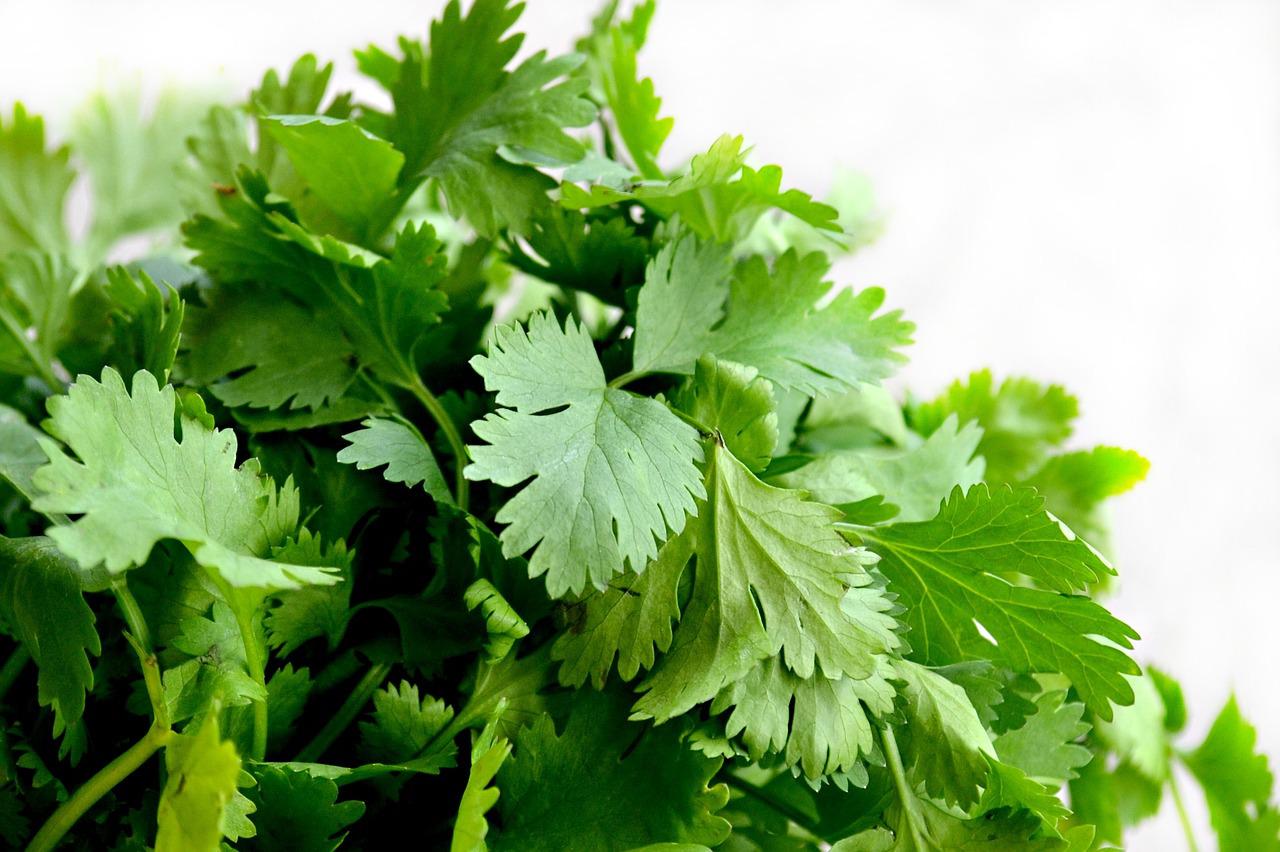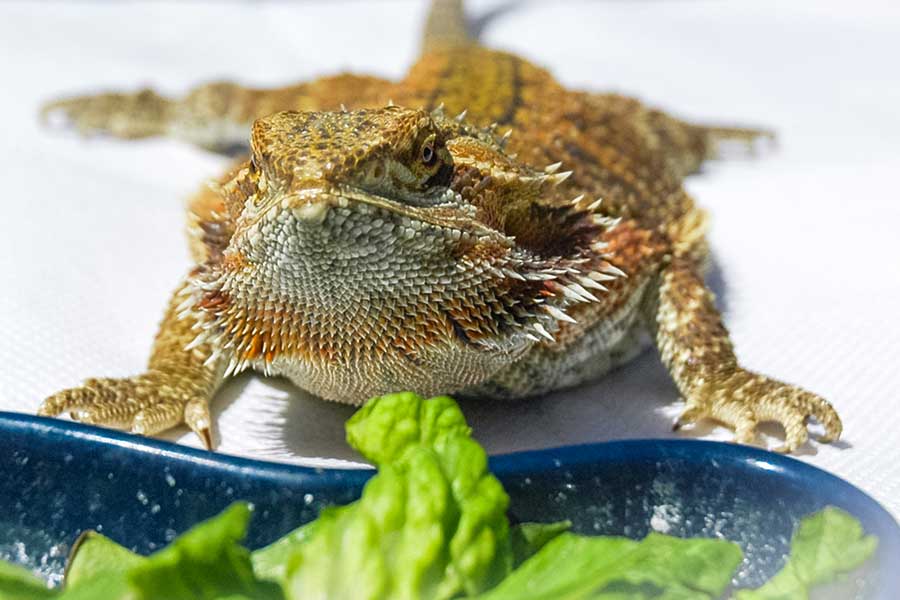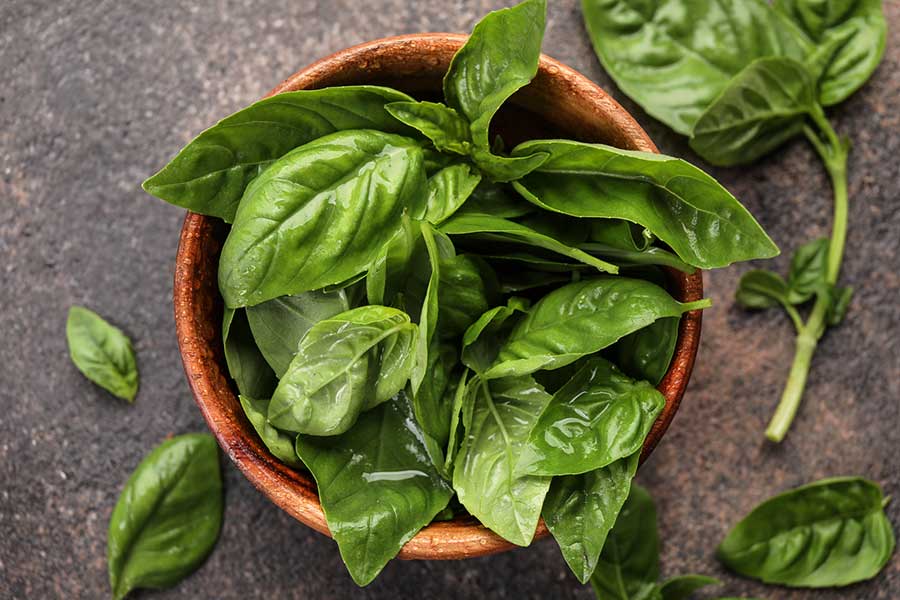It is no secret that good nutrition means happy and healthy people and pets. It also means you shouldn’t just be feeding your bearded dragon whatever you have around the house. With any food items, you need to consider whether it is safe for your beardie and what kind of nutritional value it adds to their diet. With that in mind, can bearded dragons eat cilantro?
The short answer is yes! Cilantro is perfectly safe for bearded dragons and contains lots of the nutrients that they need to thrive. However, it’s essential that you only feed them the fresh stuff–never dried herbs.
Also, while cilantro is good for bearded dragons, it is still something they should only eat in moderation. Too much can cause them digestive issues, and their core diet should be made up of more varied, nutrient-dense foods. For example, a sprinkling of cilantro on your beardie’s daily salad can be an excellent way to incorporate it into their diet.
In this article, we’ll take a closer look at the nutritional value of cilantro for bearded dragons and at how and how much of it they should be eating as part of a healthy diet.
Can Bearded Dragons Eat Cilantro?
As we very briefly touched on above, yes! Bearded dragons can eat cilantro. In fact, cilantro is an excellent herb to include both in your diet and that of your bearded dragon for a variety of reasons.
Firstly, it is rich in antioxidants, which are essential for boosting your lizard’s immune system so they can fight off any threats to their health. Cilantro also contains an antibacterial compound called dodecenal, which can help prevent food poisoning if your dragon does eat something that they shouldn’t.
The herb is also full of vitamins A and C, which also support the immune system. But more importantly, especially for young lizards, they support growth and the development and repair of organs and tissues. They are also essential for your bearded dragon to have good vision and a healthy reproductive system.
Greens, including cilantro, are also a source of vitamin K for your lizard. This is something that they need for their body to be able to regulate and maintain tissue and blood cells.
The yummy green contains potassium and manganese in good quantities. Potassium helps regulate blood pressure, keeping your little one calm, and manganese manages the metabolism, helping them to maintain a healthy weight.
What’s more, it has a good dose of
There is also some nice fiber in this green, and who doesn’t like their trips to the bathroom to be regular (especially when you are the one clearing it up)? Fresh cilantro is also mostly water, about 92%, which makes it a great source of hydration for dragons who might not drink all that much water.
Moving beyond what cilantro does contain, it also doesn’t contain nasties that can have a negative effect on your lizard. Specifically, it contains no sugars, which is good news for bearded dragons, since their kidneys and livers struggle to process and manage sugar.
How to Feed Cilantro to Your Bearded Dragon
First and foremost, make sure you always feed your bearded dragon fresh cilantro, which are the leaves of the coriander plant. Don’t feed them dried cilantro, which is often referred to as coriander in recipes for humans. Drying the herb actually changes its nutritional balance significantly, so it is no longer such a healthy choice for your lizard. Always avoid dry herbs for your bearded dragon.
Also, while they can have cilantro occasionally to add variation to their diet, it should not be a staple that forms part of their day-to-day eating patterns. This is for two reasons.
Firstly, while cilantro does contain lots of great nutrients, it is still mostly composed of water. This means those nutrients are only present in small quantities. In general, your beardie needs more nutrient-rich foods to form their core diet. Additionally, the herb’s high water content can cause diarrhea, which is not good for your lizard’s health or the cleanliness of their tank.
Read our guide on cleaning your beardie’s tank here.
Basically, feel free to sprinkle some fresh cilantro leaves onto your bearded dragon’s food occasionally to add interest and variation, but don’t go overboard. It makes a nice accompaniment to vegetables such as carrots and peppers, and it can also add some zest to fresh berries like blueberries or strawberries.
Limit yourself to around 5 to 8 cilantro leaves per serving to give your lizard a good taste of it without introducing any problems related to excessive moisture.
What Other Herbs Can Bearded Dragons Eat?
Cilantro is only one of a variety of herbs that can make a great addition to your bearded dragon’s diet.
For instance, basil contains many of the same nutrients as cilantro, including vitamins C and K, but it also contains vitamin E, which is essential for a healthy brain and great skin, and vitamin B6, which is necessary for maintaining a healthy weight and their overall energy levels.
Like cilantro, basil contains lots of fiber and a nice dose of
Fresh rosemary is another herb you can add to your beardie’s diet occasionally. It is high in
The same rule of “on occasion” applies to most fresh herbs, including fennel, lavender, lemongrass, mint, oregano, and thyme. Like with cilantro and basil, always go fresh and never dried, as the dried stuff concentrates the elements that are worst for your lizard.
Also, while there are a lot of herbs that are safe, there are also some to be avoided when managing your bearded dragon’s diet.
In particular, avoid sage, parsley, dill, chives, and garlic. Their
Read more about the best greens for bearded dragons here.
FAQs About Bearded Dragons and Herbs
How much cilantro can bearded dragons eat?
Only feed cilantro to your bearded dragon occasionally, and when you do, give them between 5 and 8 leaves as a healthy dose. While they will probably gobble up the leaves whole, it may be a good idea to cut up the leaves so there is no chance of larger leaves getting caught in their throat.
What herbs can bearded dragons not eat?
While most herbs are fine for bearded dragons in moderation, it is best to avoid sage, parsley, dill, chives, and garlic. If they accidentally have a bite, it won’t hurt them, but they can cause illnesses in your lizard if eaten regularly. Also avoid dried herbs, as they tend to be too concentrated for your beardie’s digestion.
What greens can bearded dragons eat every day?
The best every day greens for bearded dragons include cactus pads, collard greens, dandelion leaves, mustard greens, and turnip greens. These are great because they don’t contain too much moisture, they are dense in nutrients that are good for your lizard, and they have the right
How do you cut cilantro for bearded dragons?
Before giving cilantro to your bearded dragon, wash it thoroughly to remove any insecticides and other contaminants. Remove the leaves from the stems and just give them the leaves. While your beardie will likely eat the leaves whole, you can also cut them finely to ensure there is no chance of leaves getting caught in their throat while eating.
The Verdict on Cilantro
Cilantro is a healthy herb to include in your bearded dragon’s diet. Many beardies also love the taste and will gobble up the leaves if you put them down in front of them.
However, while cilantro contains lots of healthy nutrients for your lizard, it is more than 90% water. This is why it should not be considered a staple in your beardie’s diet. That moisture content can upset your lizard’s digestive system, and their core diet should be composed of more nutrient-dense foods anyway.
Still, cilantro makes a great addition to your beardie’s salads from time to time, ideally sprinkled on top of veggies or fruits. It tastes good to most lizards and adds variety to their diet, which helps them maintain an overall healthy digestive system.
Remember, only feed them the fresh stuff! This goes for all herbs. The drying process changes their nutritional value, and your bearded dragon is adapted to eat fresh food.
Do you have any tips for feeding bearded dragons? Share them with the community in the comments section below.




